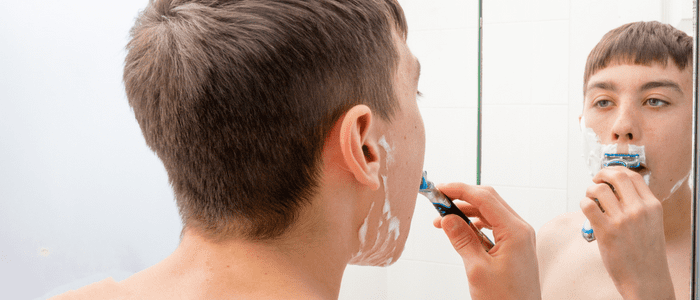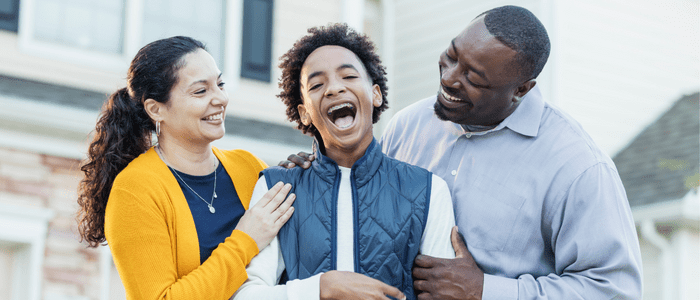Mason Wiebe, PA-C
The different stages of puberty for boys is a topic that can be uncomfortable, but it’s also a very necessary and beneficial conversation to have. As parents, it is important to note that puberty is not just a one-and-done type of conversation – it should be ongoing throughout all stages of growth and development for young boys. Teaching our Healthy Steps Class since 2017, I have some tips for you to address any concerns you might have while your young boy experiences all of the different stages of puberty.
Timing Of Puberty
It’s important to understand that the stages of puberty start and end at different times for every young man. It can start as early as 9 years old to as late as 13 ½ years old for some. This means parents must feel prepared to talk to their boys about puberty at any time and some boys could be going through the stages or at different stages than their siblings and friends surrounding them – which can propose another difficult obstacle in tackling this discussion.
The most important takeaway for parents is that because your young boys could be experiencing growth and development at a young age, the conversation should be open and ongoing throughout all stages of puberty.
Growing
Growth spurts are actually very common in boys during the stages of puberty, and I’m not just talking about their height. Starting at as young as 9 years of age during puberty, some boys experience growth of about 4.1 inches per year. During puberty for boys all of the following body parts can grow from the ages of 9-16 ½ years of age:
-
- Head, hands, & feet
- Arms and legs
- Torso and shoulders
Genitalia & Pubic Hair
In the early stages of puberty, around ages 10-13 ½ years old, the scrotum and penis grow larger. Some reddening and texture changes in the scrotal skin will be noticeable at this stage, and young men may also begin to notice pubic hair at the base of their penis.
During this stage of growth is when most boys will have their first ejaculation of seminal fluid either as a wet dream or as a result of masturbation. Talking to your young man about the process of ejaculation and masturbation is important so they understand that all the feelings they are having are a normal part of growing up.
Voice Change
At the same time that they are experiencing all this growth in their bodies, young men also will notice a change in their voice. Although this process is gradual, it can have the tendency to make their voice break at times. During this time, boys can experience the feeling of embarrassment through this transition.
Body Hair

You will start to see facial hair and underarm hair growth about two years after your child has pubic hair appear. Usually, facial hair will appear at the corners of the upper lip first and grow down finally to the sides of the face and chin.
Acne
With underarm hair growth comes the development of more sweat-and-oil-producing glands, which in turn results in acne if those glands get clogged. At this time, it is important to establish a personal hygiene routine with your teenager. Helping them form healthy habits to wash their face twice daily can help keep their acne under control.
Talking to Your Teenage Boys During Puberty
Going through all of these things at once can be difficult for any young boy, which is why the conversation can be extremely uncomfortable. Your first talk about puberty and what they are experiencing should not be your last. Having an open conversation with your child through all the stages of puberty is key to embracing this stage of life with them. As a parent, letting them understand that everything they are experiencing and feeling during puberty is normal, will help immensely throughout the transition.
Reach out to your Youth Clinic provider to discuss any challenges you experience as you guide your young boy and family through all stages of puberty. We are on your team and want you to stay well through every stage of growth and development your family experiences.
About Mason Wiebe, PA-C
Mason Wiebe, PA-C, has been with The Youth Clinic since 2016. He has several degrees, including a Masters of Physician Assistant Studies from the University of Colorado School of Medicine. He also received a BS in Environmental Education and an MEd in Secondary Education from Colorado State University.
As an outdoor enthusiast, Mason enjoys spending time with his wife and kids running, skiing, climbing mountains, traveling, and eating good food. He loves getting to know his patients and watching them grow up over the years. Learn more about him and all The Youth Clinic providers on our website!


